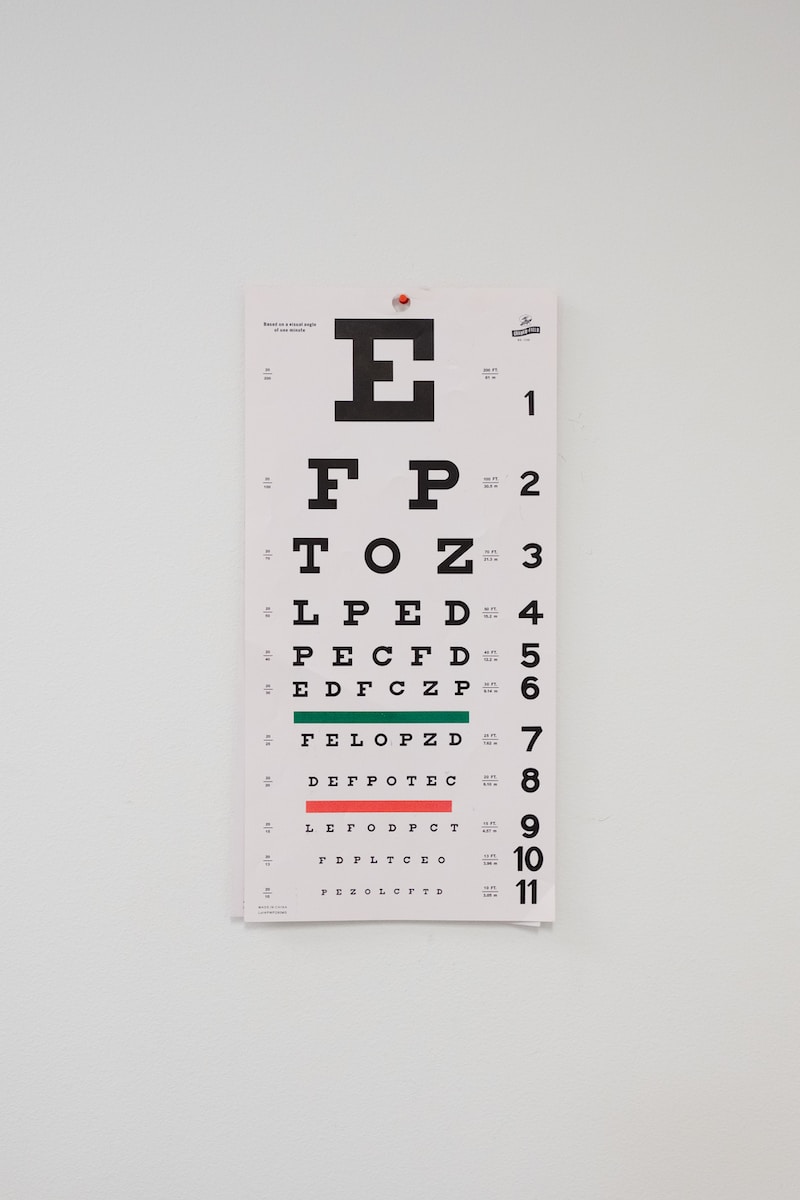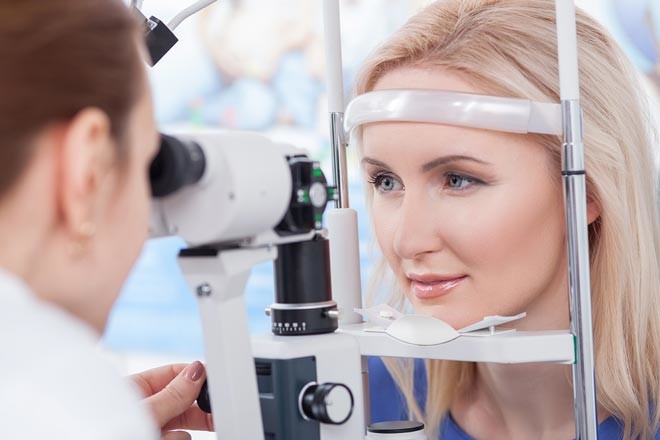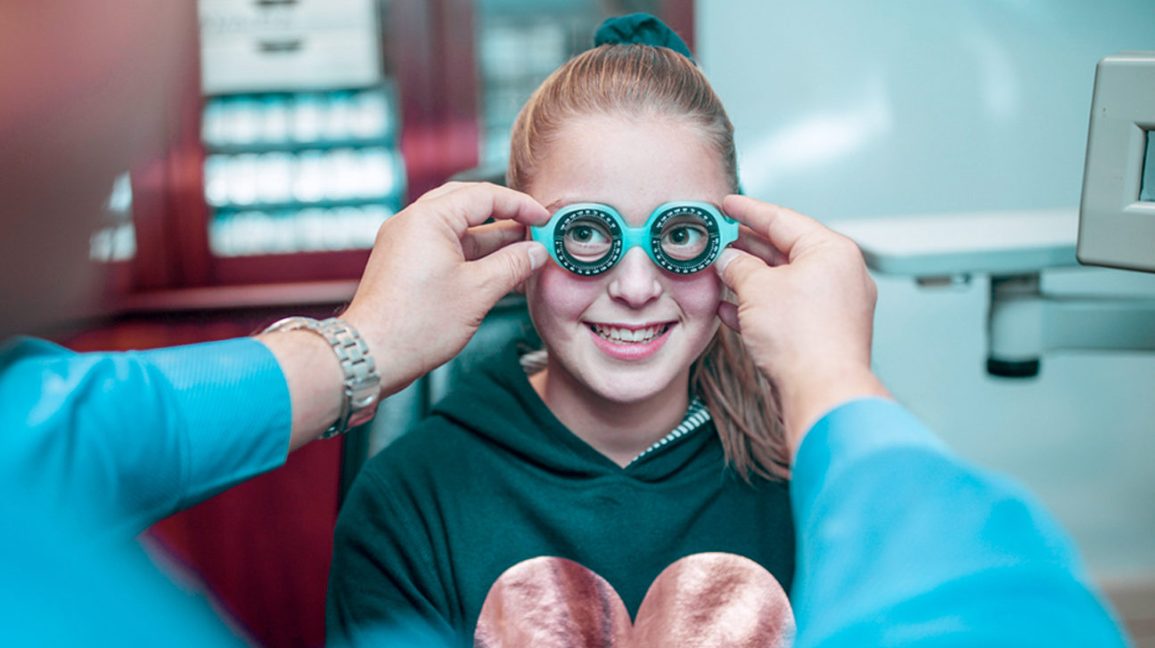Trust. Tradition. Technology
Jordans Eyes
The best Ophthalmologists near you for quick assistance and eye-checkups.
Book a Free Consultation
Your One Stop Solution For Eye Care Needs
Call Us Today for FREE Consultations
Specialities Offered
Cataract Surgery
Keratoconus
Glaucoma
Neuro Ophthalmology
Orbital Surgery
Pediatric Ophthalmology
Get A Free Eye Examination
Happy Stories

Ashley B. Bussey

Jason C. Zimmerman

Justin S. Gomez
Latest From Blog
What You Need to Know About LASIK Eye Surgery
Are you tired of wearing glasses or contact lenses? Perhaps you’re considering a more permanent solution to correct your vision. If so, LASIK eye surgery might be the answer you’re looking for. In this article, we’ll discuss everything you need to know about LASIK eye surgery, including its benefits, risks, and eligibility criteria. We’ll also cover the procedure, post-LASIK care, costs, and alternatives.
What is LASIK Eye Surgery?
LASIK, short for Laser-Assisted in Situ Keratomileusis, is a popular refractive eye surgery that can correct common vision problems such as nearsightedness, farsightedness, and astigmatism.
How does LASIK work?
During the procedure, a surgeon reshapes the cornea—the clear front part of the eye—using an excimer laser. This reshaping allows light entering the eye to be properly focused onto the retina, resulting in improved vision.
Types of LASIK
There are several types of LASIK, including traditional, custom (wavefront-guided), and bladeless (all-laser) LASIK. Each type has its unique advantages, and your surgeon will recommend the most suitable option for you based on your specific needs.
Benefits of LASIK Eye Surgery
Improved vision
Most patients experience a significant improvement in their vision following LASIK, with many achieving 20/20 or better. This can make everyday tasks like reading, driving, and watching TV much easier and more enjoyable.
Quick recovery
Recovery from LASIK is generally quick, with most patients returning to their normal activities within a day or two of the procedure.
Reduced dependence on glasses and contact lenses
One of the main benefits of LASIK is the reduced dependence on corrective eyewear. Many patients can eliminate or significantly decrease their reliance on glasses or contact lenses following the procedure.
Risks and Side Effects
As with any surgery, there are potential risks and side effects associated with LASIK.
Temporary side effects
Some patients may experience temporary side effects, such as dry eyes, glare, halos, or light sensitivity. These issues typically resolve within a few weeks to months.
Complications
Although rare, complications can occur during or after LASIK surgery. These may include infection, inflammation, or problems with the corneal flap. In some cases, patients may require additional procedures to correct these issues.
Are You a Candidate for LASIK?
Not everyone is a suitable candidate for LASIK. Several factors determine your eligibility, including:
Age
Candidates must be at least 18 years old, as vision can continue to change during adolescence.
Stable vision
Your prescription should be stable for at least one year before undergoing LASIK.
Eye health
Certain eye conditions, such as severe dry eyes, glaucoma, or cataracts, may disqualify you from LASIK surgery.
Preparing for LASIK Eye Surgery
Before the procedure, your surgeon will conduct a thorough eye examination and review your medical history. They may also recommend that you stop wearing contact lenses for a few weeks before surgery to ensure accurate measurements.
The LASIK Procedure
Step by step
- Numbing eye drops are applied to minimize discomfort.
- A protective flap is created on the cornea using a microkeratome or a femtosecond laser.
- The excimer laser is used to reshape the cornea, based on your specific prescription.
- The corneal flap is repositioned, and the eye is allowed to heal naturally.
The entire procedure typically takes less than 30 minutes to complete.
Post-LASIK Care and Recovery
What to expect
Following the procedure, you may experience mild discomfort, burning, or itching. These sensations should subside within a few hours.
Recovery timeline
Most patients can return to their normal activities within a day or two. However, you should avoid swimming, using hot tubs, or engaging in contact sports for at least two weeks to prevent complications.
LASIK Costs and Financing
The cost of LASIK varies depending on factors such as location, surgeon experience, and the type of procedure. Many clinics offer financing options, making the procedure more affordable for patients.
Choosing a LASIK Surgeon
Selecting an experienced, board-certified ophthalmologist is crucial for ensuring the best possible outcome. Research your options, read patient reviews, and schedule consultations to find the right fit.
Alternatives to LASIK
If you’re not a candidate for LASIK, other vision correction procedures such as PRK, LASEK, or ICL (Implantable Collamer Lens) may be more suitable options.
Conclusion
LASIK eye surgery can be a life-changing procedure for those seeking freedom from glasses or contact lenses. Understanding the benefits, risks, and eligibility criteria can help you make an informed decision about whether LASIK is right for you. Always consult with a qualified ophthalmologist to discuss your options and find the best solution for your vision needs.
FAQs
- How long does LASIK last? While LASIK permanently reshapes the cornea, age-related vision changes may still occur. However, many patients enjoy the benefits of LASIK for years or even decades.
- Is LASIK painful? Most patients report minimal discomfort during and after the procedure, thanks to numbing eye drops and careful post-operative care.
- Can LASIK be repeated if my vision changes? In some cases, LASIK can be repeated or a touch-up procedure called enhancement can be performed to address vision changes.
- How soon can I return to work after LASIK? Many patients can return to work within a day or two of the procedure, though it’s essential to follow your surgeon’s specific recommendations based on your individual recovery.
- Does insurance cover LASIK surgery? Most insurance plans consider LASIK an elective procedure and do not cover the cost. However, some plans may offer discounts or allow you to use flexible spending accounts (FSAs) or health savings accounts (HSAs) to help cover the expense.
Should you run with or without glasses?
As opthalmologists, we are often contacted by people – both online and in real life – who wonder whether they should run with or without glasses. They worry about whether their glasses will bounce around too much, and whether their eyes will get disoriented by having their peripheral vision move so quickly and unclearly on the sides of the glasses, while they can see perfect well straight ahead.
Glasses might bring a higher risk of falling
The first thing we want to point our regarding running with glasses, is that it might make it more likely that you fall. This is something we were told by Stian Nyhus, CEO and physiotherapist at Salis Fysioklinikk in Kristiansand, Norway. When a runner throttles along at high speed, and suddenly his glasses are about to fall off, then he naturally wants to make them sit well with his hands for a split second. This split second is sometimes all it takes to make the runner fall.
Falling can lead to injuries
Furthermore, these falls sometimes lead to injuries. Stian says that running with glasses has caused injuries for many of his clients, especially when the glasses don’t sit well. On his clinic’s website, Fysioterapi Kristiansand, the official mission statement is having a “holistic approach to the client’s situation,” and discouraging people from running with glasses is one of the main pieces of advice Stian gives to runners with poor eyesight. Lenses are a much better and safer choice.
Don’t run with glasses; run with lenses
Choosing to go for lenses over glasses when running brings the following benefits:
- They sit naturally, and often you won’t even feel that they’re there
- It takes a lot more to make them fall off
- Since they don’t fall out, lenses can help save you money, since you aren’t in risk of dropping and breaking your glasses while running
- Lenses don’t collect dew, like your glasses can do when your breath hits the glass or your body temperature emits heat while the weather is cold
Miracle Worker – Electrictian goes from almost blind to 20/20
A story of a man who has “gone from almost blind to 20/20“, Electrician’s journey began in the infancy of his life. He was born in obscurity and spent his first 18 years feeling invisible, feeling unloved and completely unwanted.

His mother was an alcoholic and his father was a doctor in the army but he felt unloved and unwanted. He was also abandoned at birth and did not have a birth certificate until he was fifteen years old. It was only after he had a hard life, with no support from his parents, that he learned how to fight back and took control of his life.
He was lucky because he got away from many of the people who brought him up. He became fascinated by electrical equipment and began to take courses and classes, wanting to become an electrical engineer. Then, when he was nineteen, he went to Norway for a spiritual retreat and was quickly bitten by the wonderful country. After this, he continued to take courses as he continued to grow in the consciousness and wisdom field.
A near-death experience changed his life forever. While recovering from surgery, he heard a voice in his head that told him to start his journey of healing. He found out that you can be brought back to life and go back to the consciousness that you were in the very beginning.
When you are brought back to consciousness, you realize that you are loved unconditionally. You begin to love yourself unconditionally, and this starts your quest to find love. You do this by appreciating what you have and then loving it even more. He then went on to say that the most powerful love that you can give to yourself is unconditional love. The now 40-year-old man was a successful electrician but suffered from almost becoming completely blind after the accident.
Luckily here at our clinic, we were able to train his sight, combined with laser surgery, he now has great sight (20/20) and continues his work in Bergen Elektro og Varme in Norway.
He said that everyone does not love themselves as unconditionally as you can, but then everybody loves you unconditionally. The key is to reach out and show it to yourself and the world, and this is all about love.
He also talked about how the times of earth days are coming to an end. As humans, we must take on our roles, including our role in the earth’s ecosystem. We all have a role to play, and we must not just continue to wait for some outside force to rescue us.
People are not supposed to sit around and wait for the authorities to do something for them. The planet has been rescuing us from our own inefficiencies and shortcomings, and now it needs to do the same for ourselves, starting with ourselves.
6 Ways to Improve Your Eyesight Naturally
Using natural ways to improve your eyesight is one of the best ways to make life a little easier, both for yourself and for your eyes. There are many things you can do to improve your eyesight naturally without having to resort to surgery.

A lifetime of excess stress, an unhealthy diet, poor sleep, and not being sure what is causing your eyesight to deteriorate are all contributing factors. Improving your eyesight has never been easier than it is now.
If your eyesight is your biggest problem areas, you should first look at your lifestyle. Is there anything you can do in your daily routine to help improve your eyesight? It could be as simple as taking a 30-minute walk every morning.
This will decrease your chances of having a stressful day and reduce the amount of time that you spend staring at a computer screen. An hour or two of exercise three times a week will do wonders for your eyesight. You will need to choose your activity carefully because it will take a little while to get used to it.
Tip #1
Other exercises include simple exercises that you can do sitting down. If you are already doing something you can do the first exercise for ten minutes and then do the next. The key is to start slowly and build up to longer exercises.
Tip #2
Many people ignore their contact lenses or other types of glasses and when they get home from work, they immediately rush to the store to buy some light bulbs or a contact lens. The truth is that the more daily tasks you do, the more of these things you will need, so if you want to make your life easier, you need to eliminate them.
Tip #3
Another important part of a person’s eye problem is the production of fluids in the eye. There are many things that contribute to this, but diet is the biggest one. High sugar foods can cause you to see halos around objects or dark spots that look like they have rings around them.
Tip #4
Eating a healthy meal right before going to bed will help improve your vision. It will also help you avoid a mid-morning craving for a donut or cookie. This can cause your vision to become even worse than it was before you started to eat.
Tip #5
A natural way to improve your eyesight is through relaxation. You do not need to be scared about it, but it will allow you to see better. By relaxing, you will be able to focus better and focus on what is needed to achieve your goal, and it will provide you with some great rest.
Tip #6
One more easy thing you can do to improve your eyesight is not having your eyes open too much during the day. Have you ever gotten a headache just because you opened your eyes too early or had an abrupt stop to your day due to stress?
These are only a few of the many new ways you can learn to improve your eyesight naturally, the CEO of Tannlege Bergen says that his patients that have good dental health, also have good eye health. And also suggest that in order to keep your eyes healthy, stay away from unnecessary medications and opt for natural solutions.
Tips for Maintaining a Good Eyesight and Overall Health
Good eyesight is one that goes beyond the criteria of age and tends to remain as powerful as ever. But to reach that particular stage, you need to be an individual who follows a couple of methods. Once you engage yourself in the same, things tend to go the right way, and your eyesight will be on top. But you also need to note that implementing these methods tend to bring about changes in your lifestyle. The same old dynamic routine may never work again. So, if you’re on board with that, then you should go ahead to read the tips.
The Right Diet
Let’s start with an exciting topic, i.e. food. The type of food that you consume determines a lot about your lifestyle in terms of health. In the same manner, when you consume food items that include omega-3 fatty acids, vitamins C and E, you are lowering your chances of a cataract. Thanks to the protein in these items, things will take shape for the better. But again, you cannot consume them once and forget all about the same. It needs to be a daily affair.
Wear Sunglasses
Apart from making a fashion statement, sunglasses go a long way in helping you protect your eyes from UV rays. For this purpose, you need to go out and choose the right pair of glasses that can do it all. Consulting an eye care specialist is also recommended since they know what’s best for you. So, the next time you go shopping, remember to look for a pair of glasses that comes with 99-100% UVA and UVB protection.

Screen Breaks
This goes out to the IT crowd or any other individual whose job demands them to stare at a screen. Once you enter a process that requires you to work in front of a screen, your eyes tend to face instances where it dries out, eye strain, among other cases of shoulder pain and headaches. To solve this issue, it is always advisable that you take a break here and there so that your eyes need not be looking at the screen all day long. The position that you choose also makes a difference, and you need to make sure that your screen is at eye level.

Regular Check-Ups
An eye Check-up is an important step that goes a long way in helping you maintain your eyesight. Here, a professional will be able to give you advice about ways of improvement, so that you can always have what you need. Their prescribed medicines have always known to be effective and cure problems relating to your eyesight. Hence, make sure to book an appointment regularly.
Different Types of Eye Care Professionals
Studying the eyes is a process that takes years and brings about qualified professionals. The kind of knowledge that they have tends to go a long way in curing people of their problems. But due to the complexity of the matter, various professionals in the industry cater to a different set of needs. Understanding their routine or task will help you with the right way of dealing with matters as they come. Once you are on board with the same, things will be a cakewalk. Hence, to shed more light on the same, here are different types of eye care professionals.
1. Optometrist / Optometry
Optometry or an optometrist is an individual whose set of specialities lies with the vision of the eyes; it’s health and the visual structure. Due to that, he/she will be able to take care of issues such as disorders, detection of eye disease; it’s functionality, and so on. Their operations start with examinations by which they determine the current state of your eye. By all means, they are licensed professionals who carry on this practice under the norms of the law. Once you see initials like “O.D” after his/her name, you can be assured that it refers to an Optometrist.
2. Ophthalmology / Ophthalmologist

An ophthalmologist is an osteopathic physician who specialises in the surgical and medical care of the eye to avoid eye diseases. Anatomy, disease and functionality can be described as their areas of study or branch of medicine. Be it retractive or surgical problems; an Ophthalmologist is the one to approach. Just like other professionals, they are also licensed to carry out procedures that help to prevent disorders and diseases. For easy identification, all you need to look out for is “M.D” or “D.O”.
3. Orthoptist
An Orthoptist is an individual who works according to the rules of an Ophthalmologist, as a move to treat disorders of the visual system. They are certified healthcare professionals with an emphasis on eye movement problems and binocular vision. To avail this form of credential, you need to have a bachelor’s degree that should be followed by a postgraduate orthoptic fellowship that lasts for two years.
4. Optician
As the name suggests, an Optician is a healthcare professional who is trained with the job of supplying, dispensing and preparing optical appliances. The type of products that they sell are authorised by the right individuals and thus can help you solve problems. Be it on the job programs or other forms of training; an Optician learns the required set of methods or skills that are needed to carry on this profession. By all means, they will be trained in areas that relate to frames and adjusting the eye.

Call Us
615-573-5577
Reach Us
439 Green Street Nashville, TN 37211
Open Hours
Mon-Fri 09:00 - 19:00 Sat-Sun 10:00 - 14:00





